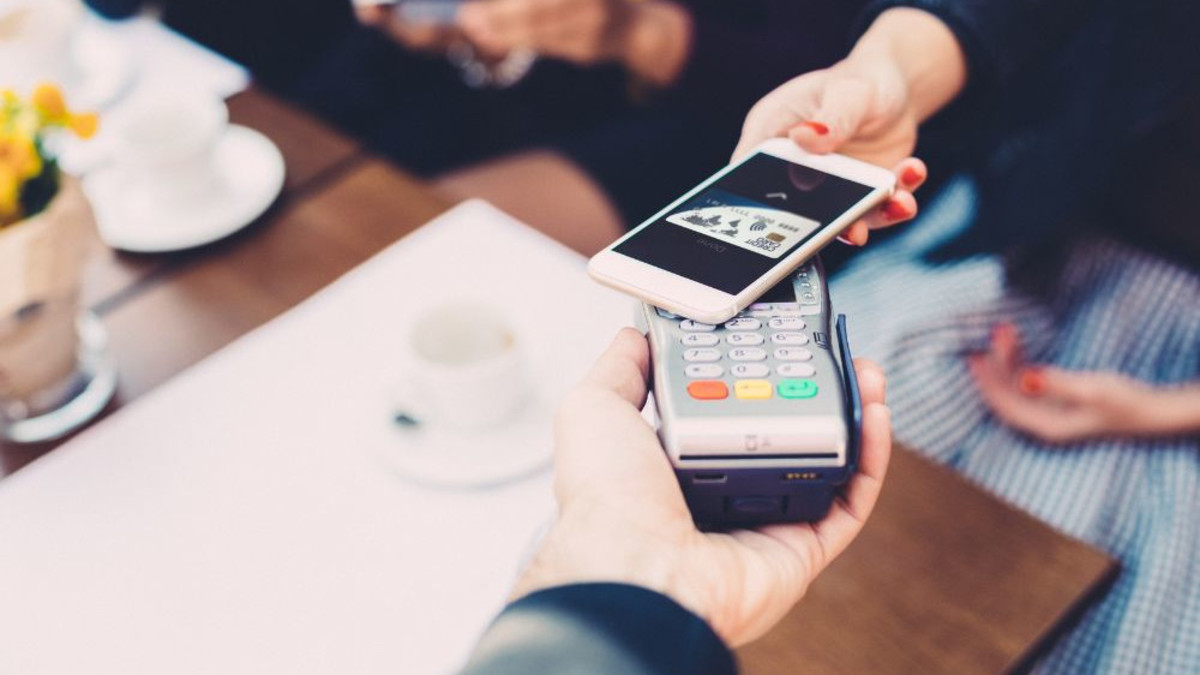Digital Wallets: What Are They and How Do They Work?

Joy Wallet is advertiser-supported: we may earn compensation from the products and offers mentioned in this article. However, any expressed opinions are our own and aren't influenced by compensation. To read our full disclosure, click here.
What are digital wallets?
- Commission free stock trading.
- No account minimum.
- Trade stocks, options, ETFs, and more.
- First stock free.
How do digital wallets work
- Account setup. You can download and install the digital wallet app on your smartphone, tablet, or computer. Then create an account by providing personal information such as your name, email address, and phone number. You may also need to set up a secure password or use biometric authentication.
- Adding payment methods. You can add your payment methods to the wallet. This can include credit or debit cards like Visa, bank accounts, or even cryptocurrencies. The wallet may require you to verify the payment methods by entering a code sent to the bank or card issuer or by confirming a small test transaction.
- Make payments. When shopping online, you can select your digital wallet as the payment method. Log into the wallet, choose the linked payment options you wish to use, and confirm the transaction. The wallet securely processes the payment and completes the transaction. For in-store purchases, use the digital wallet by holding the smartphone or wearable device near a contactless payment terminal. The wallet app uses NFC (Near Field Communication) or MST (Magnetic Secure Transmission) technology to transmit payment information securely. You can authenticate the transaction using biometric methods or a passcode.
- Storing additional information. Digital wallets can store loyalty cards, gift cards, and coupons. You can add these by scanning barcodes or entering codes manually. You can also store digital tickets and boarding passes in the wallet, allowing for easy access and use when needed.
- Security measures. All sensitive information is encrypted to prevent unauthorized access. Instead of transmitting actual card details during transactions, digital wallets use tokenization, which replaces card information with unique tokens. This ensures that even if transaction data is intercepted, it cannot be used for fraudulent purposes. Many wallets use fingerprint scanning, facial recognition, or other biometric methods to authenticate users, adding an extra layer of security.
- Two-factor authentication (2FA): Users may need to enter a code sent to their phone or email to complete certain transactions, providing additional protection.
Features of digital wallets
Convenience
Security
Financial management
Rewards and offers
Accessibility and versatility
- Commission free stock trading.
- No account minimum.
- Trade stocks, options, ETFs, and more.
- First stock free.
Pros and cons of using digital wallets
- Convenience. Transactions are quick and simple, often requiring just a few taps on a smartphone. This eliminates the need to carry physical cash and credit cards. Can be used across various platforms and services, from online shopping to in-store payments.
- Secure. Features like encryption, biometric authentication, and tokenization protect user data and lessens the risk associated with carrying cash and physical cards.
- Financial management. Automatic recording of transactions helps users keep track of their spending. Some wallets also offer built-in budgeting and financial planning tools.
- Rewards and offers. Many digital wallets offer cashback, discounts, or reward points. Users can accumulate and redeem loyalty points directly through the wallet.
- Data breaches. Despite advanced security, digital wallets can still be targets for cyberattacks. If a device with a digital wallet is lost or stolen, unauthorized access could occur if security measures are weak.
- Limited acceptance. Not all merchants, especially smaller businesses, accept digital wallet payments.
- Privacy concerns. Digital wallets collect a significant amount of user data, which could be used for targeted advertising or other purposes.
- Fees. Some digital wallets charge fees for certain transactions, such as cross-border payments or currency conversions. Some wallets might have monthly or annual fees.
Most popular digital wallets
PayPal
Apple Pay
Google Wallet (Google Pay)
Samsung Pay
FAQs
- Commission free stock trading.
- No account minimum.
- Trade stocks, options, ETFs, and more.
- First stock free.
The bottom line
Joy Wallet is an independent publisher and comparison service, not an investment advisor, financial advisor, loan broker, insurance producer, or insurance broker. Its articles, interactive tools and other content are provided to you for free, as self-help tools and for informational purposes only. They are not intended to provide investment advice. Joy Wallet does not and cannot guarantee the accuracy or applicability of any information in regard to your individual circumstances. We encourage you to seek personalized advice from qualified professionals regarding specific investment issues. Featured estimates are based on past market performance, and past performance is not a guarantee of future performance.
Our site doesn’t feature every company or financial product available on the market. We are compensated by our partners, which may influence which products we review and write about (and where those products appear on our site), but it in no way affects our recommendations or advice. Our editorials are grounded on independent research. Our partners cannot pay us to guarantee favorable reviews of their products or services.
We value your privacy. We work with trusted partners to provide relevant advertising based on information about your use of Joy Wallet’s and third-party websites and applications. This includes, but is not limited to, sharing information about your web browsing activities with Meta (Facebook) and Google. All of the web browsing information that is shared is anonymized. To learn more, click on our Privacy Policy link.
Images appearing across JoyWallet are courtesy of shutterstock.com.








